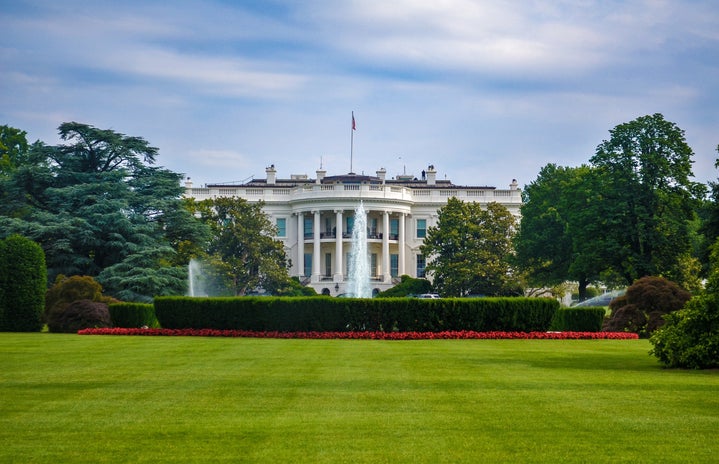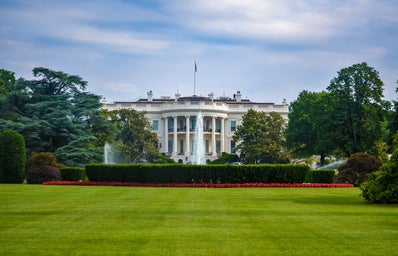Since the election in November, people who disagree with beliefs held by the new administration have taken to the streets as a way to voice their feelings of unrest. Protesting has been a fundamental part of American history since the days of the colonies as a way to express disconent for government actions. Starting with small-scale marches in cities and on college campuses, rallies and protests began to gain considerable traction after the inauguration of Donald Trump. Now, protesting has become an almost daily event in mainstream news and online media, from Facebook Live videos to full-scale news coverage.
Reactionary protests to this presidency have broken records; the Women’s March, a nation-wide protest empowering women of all demographics who disagree with the Trump administration, was the largest protest in U.S. History, garnering around 2.9 million participants in cities all over the country. In Washington D.C., the main gathering site, there were more than 4 times the number of attendants of Trump’s inauguration. Celebrity and activists like Janelle Monae, Scarlett Johansson, and march co-chair Carmen Perez gave speeches about empowering women and reminding them that they are not alone. Each march advocated for intersectional feminism above all things. This aspect really compelled me to march, since the need for inclusive and supportive feminism through all ranges of diversity, disability, class, age, and more is the foundation of the belief in equality.
My experience at the Women’s March in Manhattan was unforgettable. I joined the protest around 45th street and marched alongside women of all forms, proclaiming their need for inclusivity, recognition, and respect from the Trump administration. Chants proclaiming that “this is what democracy looks like,” “Donald Trump has got to go,” and “Pence sucks too” rang through the streets as people moved forward, advancing down Fifth Avenue in a sea of signs and pussy hats.
I’ve been a part of protests before, but this was fundamentally different. Encircled by like-minded New Yorkers, I felt completely comfortable voicing my opinion and making my voice heard. The idea alone that I was surrounded by hundreds of thousands of people who were gathered there to support each other, and to support me, was enough to convince me that we can truly win this fight. This was a day of solidarity and refusal to stay quiet, for an entire gender and those who ally with it to stand up and show this administration that they will not lie down and be walked on. That day reminded me that I am here to fight, and that I will not stop doing so, for myself and for others.
Brian Stanley, a sophomore International Studies major and student activist, has had similar experiences of empowerment and reassurance at protests. Recently he has attended the JFK immigration ban protest, as well as the LGBT solidarity march just this past weekend. When asked about his experiences in these protests, what motivated him to join them and what can be taken away from them, Stanley had this to say:
“There is a certain level of being which arises once you acknowledge the suffering of others. This way of being evolves in different ways for different people, and in my case, I ended up in the streets.
You see, the realities, data, and analysis couldn’t be clearer: systems of oppression exist in a multitude of forms and we all suffer under them in one way or another. Further, a second truth exists in the notion that many people suffer from more than one system of oppression at once, and it is not until each system falls that we can give up the fight. For me, I believe that we are all pushed at one point or another; pushed to action, pushed to silence, pushed to discomfort. At protests, marches, and days of action, I stand shoulder to shoulder with those who have been pushed, and a certain beauty is found in that. For, it seems, once one is pushed to action from their realization of systemic oppression, they also shed their chains of fear– being “the other” or the “liberal snowflake” becomes a point of pride rather than one of pathetic, incompetent degradation.
Once one is so moved to march, they are unapologetically themselves, demonstrating fierce and incredible individuality; all the while standing in group unity with others fighting a progressive defense. At the marches I go to, I am reminded ‘what democracy looks like’ and why demonstration is so important. In the literal sense, democracy looks like a diverse, liberated group of people demanding their human rights in a system which directly disadvantages them and challenges them in doing so. In the philosophical sense, democracy in America today looks like people standing up in writing, conversation, protest, or anarchy against the fascism which is slowly encroaching on our way of life. My movement has proven to me to be a movement of love and respect for people, planet, and purpose. While we are rooted in anger at transgressions against our love or respect, we acknowledge that one day we will all be free, and that has made the struggle bearable for me.”
The JFK protests erupted after Trump signed the immigration/travel ban executive order, which blocks all visitors to the United States from seven predominantly Muslim nations for 90 days (except for Syria, where refugees and travelers are banned indefinitely.) Citizens from those nations were detained at JFK airport, and have slowly been released after federal judges have issued a stay on the ban.
In a time that appears to be plagued by unending darkness, protesting has become a beacon of light for those who feel discouraged or enraged. When it feels like there is nothing to do but give up the fight, I hope you and I will both recall days where we saw true compassion and empathy for others like the Women’s March, the JFK protests, the LGBT Solidarity march, and other instances of protest. We here at Her Campus would like to assure you that you are not alone, and though this administration seems to get scarier by the day, we are fighting for you.
If you would like to get involved in protesting, Facebook is an excellent source of information. At Adelphi, protesting has become quite common and demonstrations are open to join at any time.
In solidarity,
HCAU


